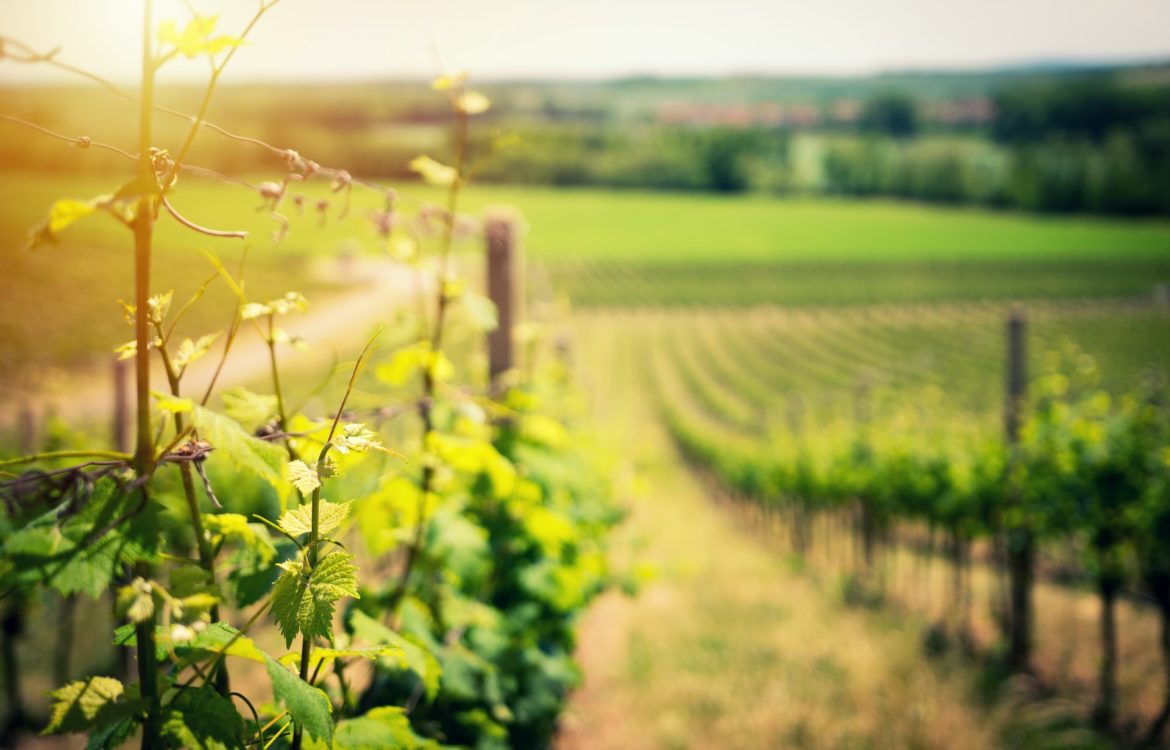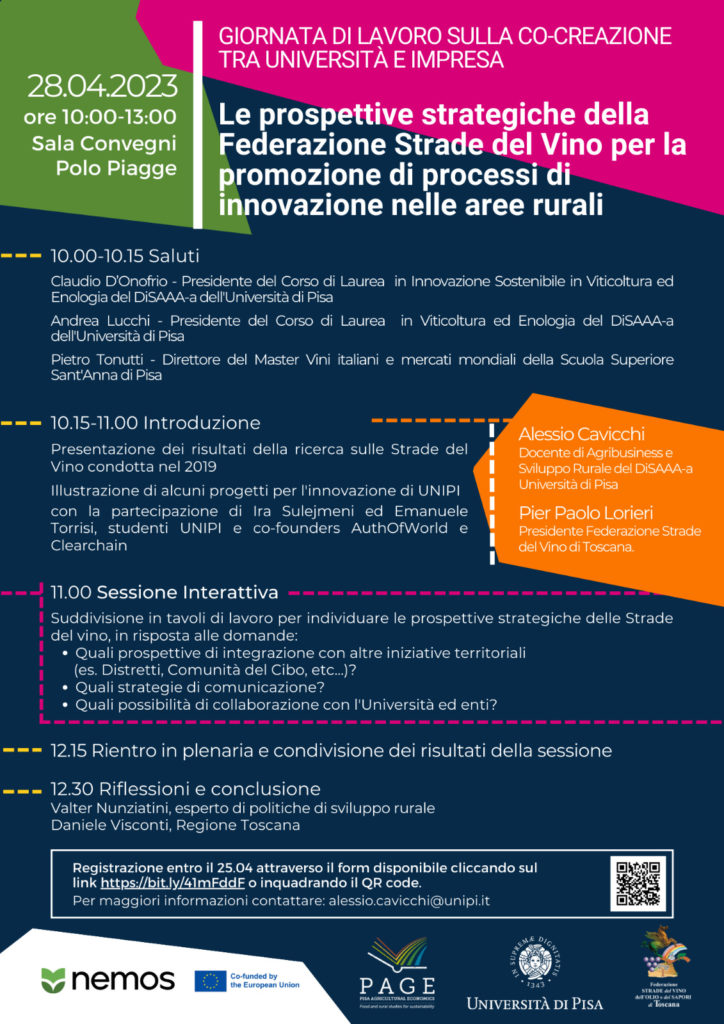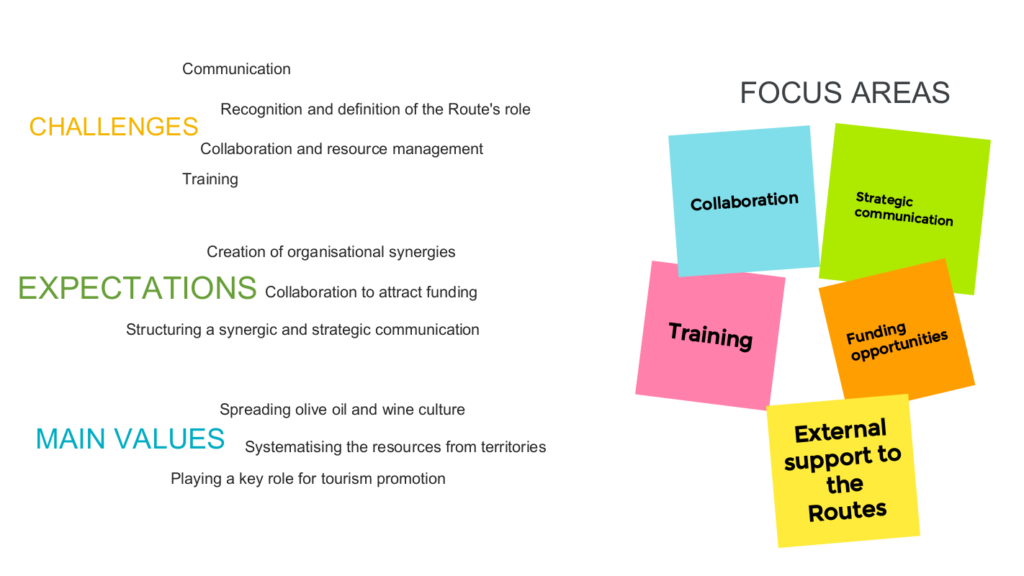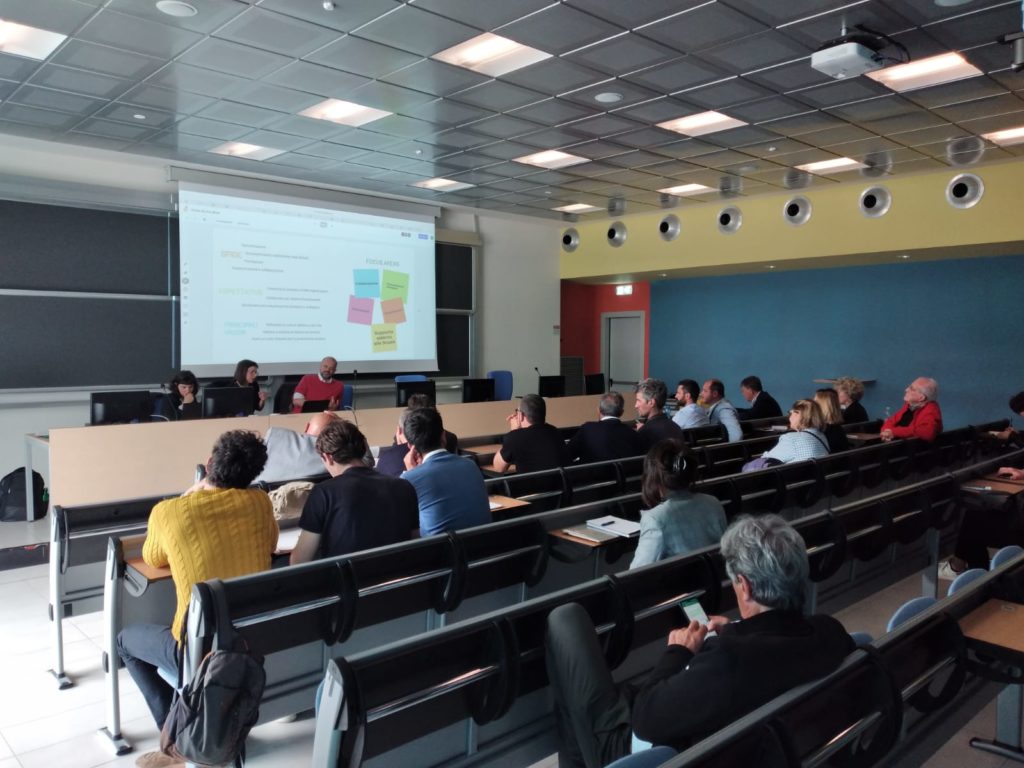
Tuscan Wine, Olive Oil and Flavours’ Routes: a dedicated event to define strategic perspectives for innovation
Written by Sabrina Tomasi, Annapia Ferrara, Chiara Mignani, Alessio Cavicchi.
On Friday 28 April, 2023 the University of Pisa held an event dedicated to the strategic perspectives of the Wine, Olive Oil and Flavours Routes of Tuscany for the promotion of innovation in rural areas through a collaborative approach involving universities’ support. The initiative was organised by Alessio Cavicchi, professor of agribusinesses and rural development at the Department of Agriculture, Food and Environment of the University of Pisa and by Pier Paolo Lorieri, president of the Federazione delle Strade del vino, dell’olio e dei sapori di Toscana.

The event is presented under the aegis of the NEMOS project as it involves a service learning approach: Niccolò Casini, Filippo Lo Jacono e Lorenzo Viali, students from the Master in Italian wines and international markets promoted by the Sant’Anna School in Pisa, the University for Foreigners of Siena, the University of Siena, and the University of Pisa support the Federation activities. Indeed, to approach common challenges discussed during the event, the students will conduct research and will provide relevant information enabling the achievement of the set objectives.
The event kicked off with an introduction involving the president of the Federation Pierpaolo Lorieri and several teachers and scholars: prof. Claudio D’Onofrio, prof. Andrea Lucchi, both from the University of Pisa and prof. Pietro Tonutti, from Sant’Anna School.
Afterwards, the NEMOS project and other international projects supporting co-creation and sustainability between the university and the local context were presented by Prof. Alessio Cavicchi.
Among the best practices, Clearchain, a startup initiative focused on blockchain-based innovative solutions for agricultural businesses. The startuppers, Ira Sulejmeni and Emanuele Torrisi, are local students involved in the CLab Pisa entrepreneurial education activities and in the Start For Future international programme.
Finally, prof. Cavicchi briefly presented the results of a 2019 research on the Wine Routes. Then, a discussion among the participants was stimulated, using a Jamboard, managed by the UNIPI post-doc researchers Sabrina Tomasi, Chiara Mignani and Annapia Ferrara, to share results.

Common general objectives emerged: spreading the wine and olive oil culture and fostering the valorisation of Tuscany through wine and food tourism.
Participants identified some challenges related to collaboration, strategic communication, getting funding to finance the Routes’ initiatives and fostering training and educational paths to increase the local human capital. Moreover, they stressed the need for regional public authorities to better define and recognise the central role of the Routes in connecting, systematising and giving value to several existing complementary initiatives (e.g.: food communities and districts, wine and olive oil consortia, community cooperatives, etc.).

Valter Nunziatini, an expert in policy actions for rural development, made a reflection on the need for assessing the state of the art regarding the Routes’ ongoing initiatives and collaborations, necessary to approach a common strategic development path, to be integrated with the scientific and educational support from the university.
Finally, Daniele Visconti, from Tuscany Region, confirmed the importance of better integrating agriculture, tourism and cultural fields and made some suggestions at a policy level.
The event involved about 30 participants among wine and olive oil producers, representatives from the local Routes and business consultants.

